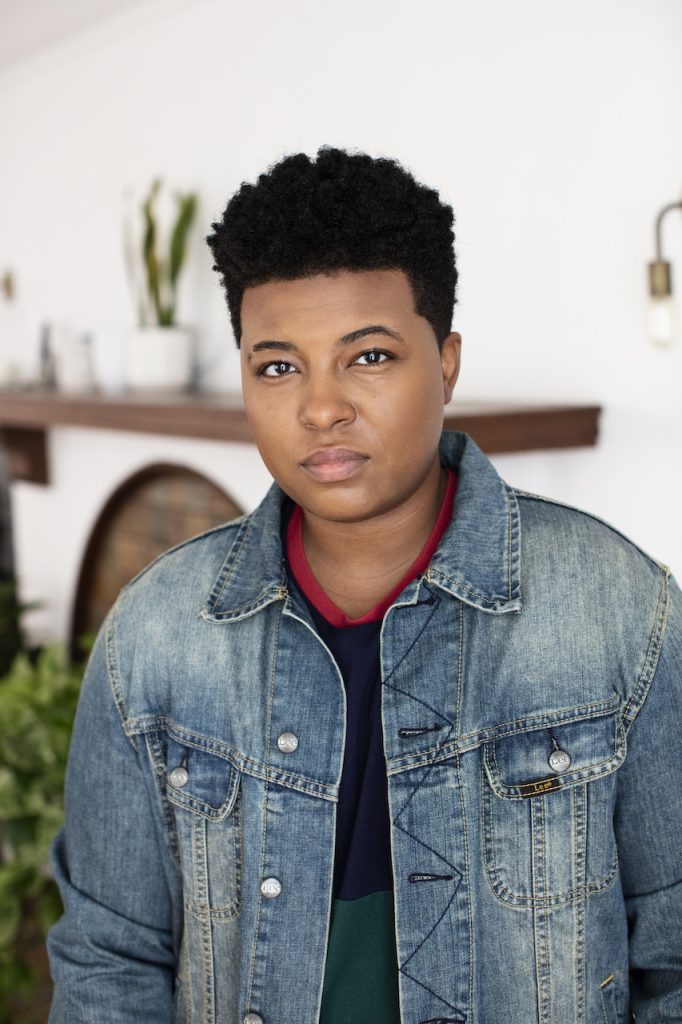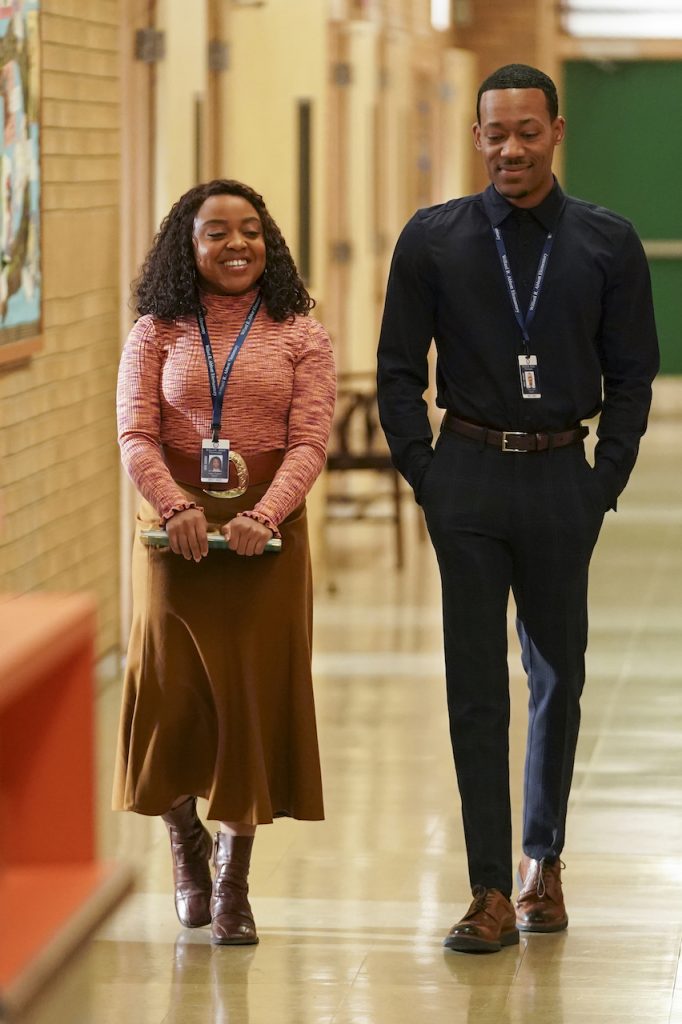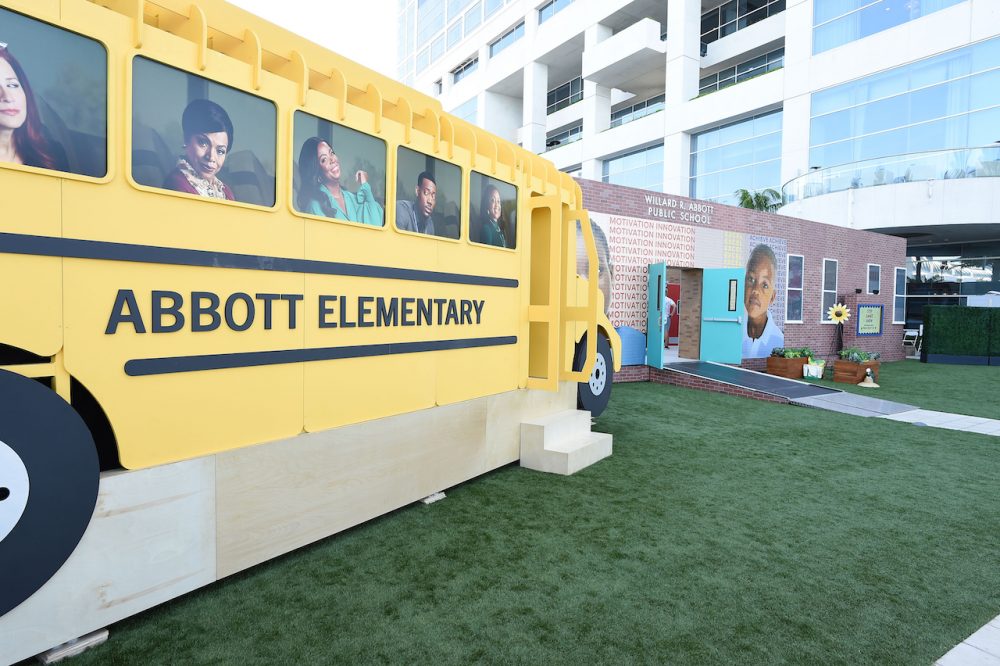The single camera workplace sitcom is a ubiquitous staple on our small screens. But there’s something special about ABC hit Abbott Elementary. Creative Screenwriting Magazine spoke with producer/ writer Brittani Nichols, an actor-writer-producer-comedian who’s also worked on Suicide Kale and The Black Lady Sketch Show.
Set in Willard R. Abbott Elementary School, a predominantly Black chronically-underfunded public school in Philadelphia, Abbott Elementary presents as a mockumentary format tracking the colorful lives of the over-worked teachers and frustrated students simply trying to get an education. It stars Quinta Brunson (who also produces) as Janine, the hopeful second grade teacher, Tyler James Williams as the love interest Gregory, and Janelle James the as tone deaf, self-serving principal Ava.
Says Nichols on the popularity of the TV show, “I think it’s the characters that make it work. Quinta, who wrote the pilot episode, did a good job of creating characters that were both recognizable and unique, which I think is the line you want to be walking in a sitcom.”
“You want people to feel, ‘Oh, I understand immediately the lanes these people are going to occupy, but also I’m still surprised at some of the situations that they get themselves into and the choices that they make.’”
Brittani Nichols is a mid-level writer on the show, and her role as producer demands some additional responsibilities. “This past season I made it to the producer level and this means you get more say in the decisions that are made. You get brought into some more conversations about the business aspects of making television, which I think a lot of people are unaware of, such as discussions on casting and budgets and problem solving.” It becomes a balance between the logistics of making the show and the storytelling.
The original idea behind Abbott Elementary was inspired by Quinta Brunson’s mother who was a teacher in a chronically-underfunded school where a set of crayons per student is considered a luxury. In spite of Quinta’s thick volume of school stories as potential episode material, she allows her writers a long creative leash. “She’ll have a few ideas for episode ideas throughout the season, but for the most part, it’s a lot of creation from the the writers themselves and bringing in our own personal stories and our own ideas for the characters,” declares Nichols.
The writers constantly speak with educators to ensure that the stories are in line with the lived experiences of teachers in schools.”Quinta sets the parameters, the spine, and the backbone of show. The rest is up to the writers.” This is also a practicality since Quinta also acts on the show.
“We’ll have Quinta for a few weeks at the beginning of the season and that’s when we do a lot of the big picture idea pitching. She really is there for the initial ideas of episodes going forward, and checking our work as we go. She’s giving the sign off on the story area and the outline level, and doing whatever touches that she wants to make on the scripts.”
A story area is a document that summarizes in the A and B stories in a couple of paragraphs. “That’s so that we can pitch the studio network the idea for the episode in the loosest terms possible to see if they like it or not.” Story areas used to be written documents, but more recently, the writers of Abbott Elementary give verbal pitches and walk the executives through the story to speed up the approval process.

Brittani Nichols. Photo by Robin Roemer
“Studio notes are usually concerned with the emotional aspects of the show… tracking where characters are emotionally, making sure that their decisions are in line with the people that we’ve seen before, and making sure that we’re setting ourselves up for success when it comes to the end of the season.” Each episode needs to progress at a rapid enough pace so that audiences feel satisfied they’ve watched an entire season at the end.
A key discussion point in the Abbott Elementary writers’ room relates to the nuance of the stories and how they’re going to make their points without heavy-handed dialogue. “We make sure that poignancy and real-world implications that are in the show are coming at the right time in both the episode and in the span of the season,” elaborates Nichols.
Abbott Elementary deliberately shifts its focus on the motley crew of characters than being didactic in its nature. “We just try to tell a good story and hope that the other things will follow. We’ve never headed into a storyline saying, ‘this is what we want to say, and then making sure the plot comes after that.’”
“We always are leading with character and seeing what people existing in those circumstances do. What are the actual stakes of their lives? What are the real issues that they would run into?”
“Following that organic line of logic, we come across things that are in the zeitgeist and part of the social consciousness because that’s just real life. It’s really our ability to keep things grounded that allows us to walk that line in a way that people can both laugh and feel like they maybe learn something about the system.”
The Comedy Of Abbott Elementary
Abbot is a workplace faux-cumentary with subtle, deep gags – some so subtle you might even miss them. The format and tone was heavily contoured by experienced documentary filmmaker Randall Einhorn, who directed. You may recognize his distinct fly-on-the-wall style in The Office and Parks And Recreation. Brittani Nichols believes Abbott Elementary most closely resembles What We Do In The Shadows stylistically.
“A lot of the comedy comes from awkwardness and really strong personality types in a way that I think people don’t typically exist. I don’t know that you’ll actually ever be in an office with someone so unfit for the position as principal Ava Coleman.”
The mockumentary comedy format is often reserved for kookier TV shows, but Abbott Elementary differs in that it’s a bit more grounded. “I think that’s given us the opportunity to really lean into the rules of documentary filmmaking and trying to stick to those so that it does feel like someone is actually trying to tell a story that can exist in a world that you would recognize outside of the show.”
The writers’ room comprises ten writers. For the most part, they work as a single unit. “Sometimes we split rooms early in the season, just when we’re trying to get moving on multiple episodes at the same time.” Abbott Elementary doesn’t divide staff writers into one room, some in the joke room, and others in the story room like some other comedy shows. “We’re trying split things evenly and let people to get every experience that goes into writing half hour broadcast comedy.”

Janine Teagues (Quinta Brunson) & Gregory Eddie (Tyler James Williams) Photo by ABC/ Gilles Mingasson
“We create story area and outlines as a group. Then we each get assigned a scene and outline and we’ll write a paragraph summarizing what happens. We might add dialogue and jokes.” The writers write their scripts from the outlines and incorporate studio or network notes, if any. “It’s a really unique experience because writers get to contribute pretty significantly to every episode.”
Occasionally the room may split and one group works on an outline and the other on a rewrite or polish. The whole room will reconvene and be given a document with the lines needing more jokes marked up. “Everyone will submit a joke for every line that has been marked for punch-up, and then we go through it as a room and judge them based on what gets the most laughs.”
Most good stories rely on conflict as their characters interact. “I think since we are sticking pretty closely to the story rules and normal beats of a sitcom, we all usually know where the conflict is going to come in the story,” says Nichols.
“A lot of the discussion is about it not being the most predictable story where any viewer who’s watching it knows exactly where it’s going or or even how exactly how it’s going to wrap up.”
“So for us, a lot of the discussion around conflict is not so much what is the conflict going to be. It’s more about how do we get out of it. I think that the ways that we get out of it are pretty varied and interesting because it’s not a show where at the end of the day everyone always agrees on the choices that were made or thinks that everyone did a good job.”
This approach relies on a could resolution where, although the conflict situation may have been overcome, it’s not clear that everyone has learned a lesson or learned a lesson they didn’t want to learn. Some episodes rely on an upbeat ending as audience comfort food, especially when some of the subject matter becomes too sad.
Abbott Elementary tests the boundaries of acceptable content as a PG-rated TV show. “I think there might be a few more jokes that are a little more risqué when the staff is outside of the school it Abbott was streamed. But I think, it being set in the school keeps things from getting too pointed,” opines Nichols.
Brittani Nichols has a varied background in entertainment. “I think the way that this benefits writing on the TV show is also the way that it detracts from it because I’m often thinking about the other aspects of filmmaking while writing.”
“I’m producing while I’m writing, thinking about different locations, how many locations we’re going to have, and what the cost of locations is going to be. I’m thinking about the experience of the actors. I’m making sure that all of my intention is on the page so that the director can have as much information as possible when they’re out shooting. These non-writing considerations also strengthen Brittani’s writing and because each episode is very fleshed out.
As a mid-level television writer, Brittani Nichols mentors the more junior TV writers on the show. She often counsels them to have more confidence in their ideas. “I tell people a lot of the time is just to be confident with their own voice because that is what’s going to set you apart. That’s what keeps you in rooms. I think that you have to talk a lot as a writer.”
“Don’t sit back and wait for other people to solve a story problem because comedy especially, is as much dependent on saying the wrong thing as it is the right thing.” There is so much information gleaned by looking at the jokes that didn’t make it to episode.
“And I think also being on set, being confident is really important because you are going to be asked a lot of questions from everyone from the props department to the director to the actors themselves. And you just have to believe in the answers that you’re giving and not feel insecure or attacked because people have questions or want a different joke or anything like that because it’s just part of the job.”
The main story engine of Abbott Elementary that drives the entire series is the fact that our public schools are under-funded. “That’s the baseline reality that the character always have to push against. And the system that doesn’t want things to change pushes back in return.” The characters must therefore find new and innovative ways to address these systemic issues. “And so for me, it’s seeing all of these different avenues that the characters will eventually try to take that’s going to keep the engine on the show pretty strong.”
And while everyone’s actions are well-intentioned, most the characters are flawed, despite them all being heroes by caring about their students education. “I think for Abbott Elementary, the villain is this failed system,” muses Nichols. “There are people with so many different types of experiences that are living within it and making do in their own way.”
We asked Brittani Nichols which character in Abbott Elementary she most closely aligns with. “For me the character that I’ve enjoyed writing for most is Gregory Eddie. I think that within the world of the show, people see Gregory as this oddball guy. But when you pull out of that world and look at all the people that exist, he’s probably the most normal one of them all.”
“Gregory’s really acting as a straight man in the school and pointing out like other people’s eccentricities and the other weird things that are happening that no one is commenting upon.” Gregory also gives the writers ample opportunity to project their won peccadillos onto him.
